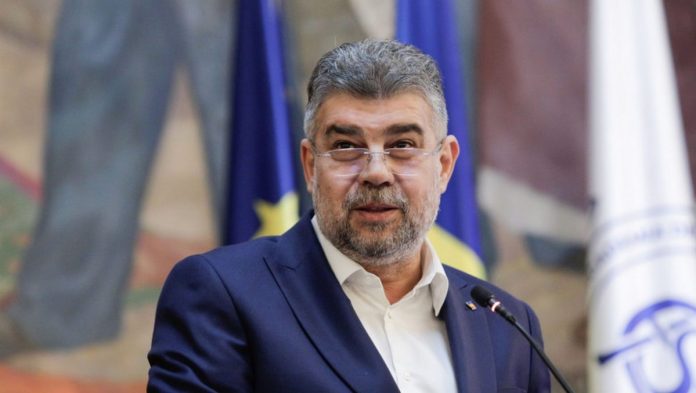The future government aims to create more jobs, but also better-paying ones, so that at the end of its mandate, every employee will earn „at least 500 euros a month and the average net salary will reach 1,000 euros”, Prime Minister-designate Marcel Ciolacu said on Tuesday, write Agerpres.
He presented, at the end of the Social Democratic Party (PSD) National Political Council meeting, the proposals for Social Democrat ministers and the main parts of the government programme.
„Romanian workers must be encouraged to stay in Romania through measures. That is why we will gradually reduce labour taxation, especially for those with low and medium incomes. Today we have one of the highest tax burdens in the European Union on low wages, twice as high as in Germany. In addition, we all know that one third of employees in Romania now receive a minimum wage of 3,000 RON gross, that is 1,900 RON net. Based on dialogue with trade unions and employers, we will increase the minimum wage to reduce the number of full-time employees in poverty. Everyone who works must be guaranteed a decent standard of living. At the end of this mandate, every employee should earn at least 500 euros per month and the average net wage should reach 1,000 euros,” Ciolacu said.
In addition, he added, all Romanians with low and medium incomes, whether salaried or retired, will continue to be supported by the state.
„All the forms of aid that we have at the moment, vouchers for food and for paying energy and gas bills, will continue,” Ciolacu said.
He reiterated that the priority focus of the future executive’s public policies will be on education and health services.
„As regards education, we have made a commitment to accelerate salary increases through the new unitary salary law. And I say it loud and clear: we will do so. To reduce school drop-out and provide equal opportunities to education, I propose a series of solutions financed from the budget and from European funds. For children in need – vouchers for one hot meal a day, school transport, clothing, school supplies twice a year and psychological counselling. But a better life is not possible without an efficient and functional health system for all Romanians. Romania still has a major problem with unequal access to quality health care. We want to modernise and equip family medicine practices in small towns and rural areas. In addition, we will increase and equip mobile health units for tests and modernise and equip more than 70 public outpatient clinics, mostly in disadvantaged areas,” Ciolacu added.




